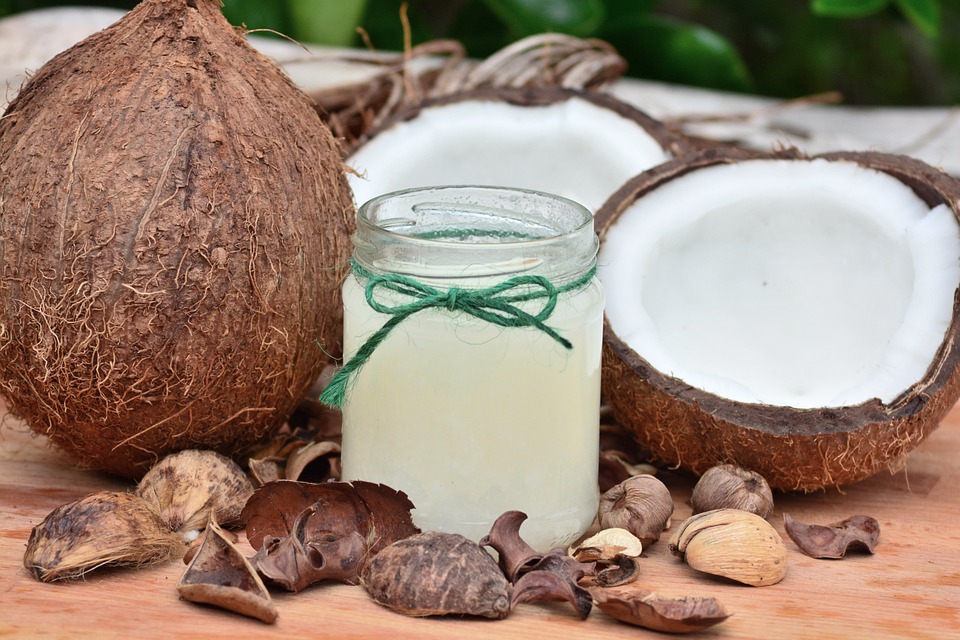Dry Skin Nutrient Deficiency: Causes and Symptoms
Dry skin is a common condition that affects people of all ages. It can be caused by a variety of factors, including nutrient deficiencies. When the body lacks essential vitamins and minerals, the skin may not receive the nourishment it needs to stay hydrated and healthy. In this article, we will explore the causes and symptoms of dry skin related to nutrient deficiencies.
Common Nutrient Deficiencies That Cause Dry Skin
There are several key nutrients that play a crucial role in maintaining skin health. vitamin A, for example, is essential for skin cell growth and repair. A deficiency in vitamin A can lead to dry, flaky skin. Vitamin E is another important nutrient for skin health, as it helps protect the skin from damage caused by free radicals. A lack of vitamin E can result in dry, rough skin.
In addition to vitamins, minerals like zinc and selenium are also important for maintaining skin hydration. Zinc helps regulate oil production in the skin, while selenium acts as an antioxidant to protect the skin from environmental damage. Deficiencies in these minerals can contribute to dry, irritated skin.
Signs and Symptoms of Dry Skin Nutrient Deficiency
If you are experiencing dry skin, it may be a sign that your body is lacking essential nutrients. Some common symptoms of dry skin related to nutrient deficiencies include:
– Flakiness or rough texture
– Tightness or itchiness
– Redness or irritation
– Cracks or fissures
– Dullness or lack of radiance
If you are experiencing these symptoms, it is important to consult with a healthcare professional to determine if a nutrient deficiency is the underlying cause of your dry skin.
How to Address Dry Skin Nutrient Deficiency
If you suspect that your dry skin is due to a nutrient deficiency, there are several steps you can take to address the issue. First and foremost, it is important to ensure that you are consuming a balanced diet rich in essential vitamins and minerals. Incorporating foods like leafy greens, nuts, seeds, and fatty fish into your diet can help provide the nutrients your skin needs to stay hydrated and healthy.
In addition to dietary changes, you may also consider taking supplements to address specific nutrient deficiencies. Vitamin A, vitamin E, zinc, and selenium supplements can help replenish the nutrients your skin may be lacking. However, it is important to consult with a healthcare professional before starting any new supplement regimen.
Preventing Dry Skin Nutrient Deficiency
While treating nutrient deficiencies can help improve dry skin, prevention is key to maintaining healthy skin in the long term. To prevent dry skin related to nutrient deficiencies, it is important to:
– Eat a balanced diet rich in vitamins and minerals
– Stay hydrated by drinking plenty of water
– Avoid excessive exposure to harsh environmental factors
– Use moisturizers and skincare products that nourish and hydrate the skin
By taking proactive steps to address nutrient deficiencies and maintain skin health, you can keep your skin looking and feeling its best. Remember, healthy skin starts from within, so be sure to prioritize your overall health and well-being to achieve glowing, hydrated skin.
Frequently Asked Queries Regarding Dry Skin Nutrient Deficiency
What are the common causes of dry skin due to nutrient deficiency?
Dry skin can be caused by a variety of nutrient deficiencies, including lack of essential fatty acids, vitamins A, C, and E, as well as inadequate intake of zinc and selenium.
1. Essential fatty acids are crucial for maintaining skin hydration and integrity.
2. Vitamins A, C, and E are important antioxidants that protect skin cells from damage.
3. Zinc and selenium play key roles in skin repair and regeneration.
How can a lack of essential fatty acids contribute to dry skin?
Essential fatty acids, such as omega-3 and omega-6, are necessary for maintaining the skin’s lipid barrier and preventing moisture loss. When there is a deficiency in these fatty acids, the skin can become dry, flaky, and prone to irritation.
1. Essential fatty acids help to retain moisture in the skin.
2. A lack of essential fatty acids can lead to a compromised skin barrier.
3. Dry skin due to essential fatty acid deficiency may result in increased sensitivity and inflammation.
What role do vitamins A, C, and E play in skin health?
Vitamins A, C, and E are essential for maintaining healthy skin as they provide antioxidant protection, support collagen production, and aid in skin repair and regeneration.
1. Vitamin A helps to regulate skin cell turnover and prevent dryness.
2. Vitamin C is important for collagen synthesis and brightening the skin.
3. Vitamin E protects the skin from free radical damage and promotes healing.
How does zinc deficiency affect skin hydration?
Zinc is a vital mineral for skin health as it plays a crucial role in wound healing, collagen synthesis, and maintaining skin hydration. A deficiency in zinc can lead to impaired skin barrier function and increased susceptibility to dryness and irritation.
1. Zinc helps to regulate sebum production and prevent excess oiliness or dryness.
2. Zinc deficiency may result in delayed wound healing and compromised skin integrity.
3. Low zinc levels can contribute to a weakened skin barrier and increased trans-epidermal water loss.
What are the signs of selenium deficiency in relation to dry skin?
Selenium is an essential mineral that acts as an antioxidant and supports skin health by protecting against UV damage and promoting skin elasticity. Signs of selenium deficiency may include dry, flaky skin, increased sensitivity to sunlight, and slower wound healing.
1. Selenium deficiency can lead to oxidative stress and premature skin aging.
2. Inadequate selenium intake may result in compromised skin barrier function.
3. Dry skin due to selenium deficiency may exhibit signs of inflammation and poor wound healing.
Common Misunderstandings Concerning Dry Skin Nutrient Deficiency
1. Dry skin is solely caused by nutrient deficiency
One common Misconception about dry skin is that it is solely caused by nutrient deficiency. While a lack of certain nutrients can contribute to dry skin, there are many other factors that can play a role as well. Dry skin can also be caused by environmental factors, genetics, age, and certain medical conditions. It is important to consider all possible causes of dry skin, not just nutrient deficiency.
2. Nutrient deficiency is the only cause of dry skin
Another misconception is that nutrient deficiency is the only cause of dry skin. While it is true that a lack of essential nutrients like vitamins A, C, and E can lead to dry skin, there are many other factors to consider. Dehydration, harsh weather conditions, excessive bathing, and using harsh skincare products can all contribute to dry skin. It is important to address all possible causes of dry skin in order to effectively treat it.
3. Increasing nutrient intake will automatically cure dry skin
Some people believe that simply increasing their intake of certain nutrients will automatically cure their dry skin. While improving your diet and ensuring you are getting enough essential nutrients is important for overall skin health, it may not be the only solution for dry skin. It is essential to also hydrate properly, use gentle skincare products, and protect your skin from harsh environmental factors in order to effectively manage dry skin.
4. Dry skin can be completely prevented with nutrient-rich diet
There is a misconception that dry skin can be completely prevented by following a nutrient-rich diet. While a healthy diet can certainly contribute to overall skin health, it may not completely prevent dry skin. Factors like genetics, age, and environmental conditions can also play a role in the development of dry skin. It is important to take a comprehensive approach to skincare that includes hydration, protection, and proper skincare routine in addition to a balanced diet.
5. Nutrient deficiency is the primary cause of all dry skin conditions
Another common misconception is that nutrient deficiency is the primary cause of all dry skin conditions. While a lack of certain nutrients can contribute to dry skin, there are many other factors that can lead to dry skin as well. Conditions like eczema, psoriasis, and dermatitis can all cause dry skin, and they may not be solely related to nutrient deficiency. It is important to consult with a dermatologist to determine the underlying cause of dry skin and develop an appropriate treatment plan.
Dry Skin Nutrient Deficiency
#Dry #skin #caused #variety #factors #including #genetics #environmental #factors #nutrient #deficiencies #Nutrient #deficiencies #play #significant #role #health #skin #vitamins #minerals #essential #maintaining #skin #hydration #elasticity.br

